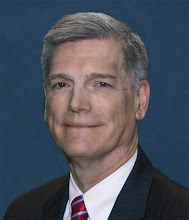 Mathematically, risk is expressed as Probability times Consequences. Following a tragic accident, however, public discourse focuses only on consequences. This is understandable - after the accident, we take no comfort in knowing that it was very unlikely to occur. In the case of Deepwater Horizon, which exploded 27 days ago, the consequences have been horrific: 11 souls lost, millions of gallons of oil leaked into the Gulf of Mexico, and millions of dollars in lost income for businesses dependent on the waters of the Gulf. Staggering as this toll is, for the companies and industry involved the damage to reputation and credibility may be just as great.
Mathematically, risk is expressed as Probability times Consequences. Following a tragic accident, however, public discourse focuses only on consequences. This is understandable - after the accident, we take no comfort in knowing that it was very unlikely to occur. In the case of Deepwater Horizon, which exploded 27 days ago, the consequences have been horrific: 11 souls lost, millions of gallons of oil leaked into the Gulf of Mexico, and millions of dollars in lost income for businesses dependent on the waters of the Gulf. Staggering as this toll is, for the companies and industry involved the damage to reputation and credibility may be just as great.Against the focus on earthshaking consequences, risk communicator David Ropeik reminds readers of the Huffington Post that:
[F]ocusing on these high profile events...can distract us from greater risks...[We] are creating vast dead zones in the oceans off our urban coasts where runoff laced with fertilizers is feeding the growth of masive mats of suffocating slime and algae...These areas are far larger than the Deepwater Horizon spill, and they are occurring around the world...We choke the seas with physical waste, ravage vast tracts of sea floor with heavy steel nets towed behind bottom trawling fishing fleets. These are EACH environmental catastrophes. But none of them gets nearly the attention that oil spills do...And as a result, less is being done to protect us from far greater risks.Mr. Ropeik's key point is one of balance:
If we're too afraid, or not afraid enough, we can do things that feel safe but actually raise our risk. And we can end up pushing the government for policies to protect us from what we're afraid of, even if that's not what actually threatens us the most, and resources spent on the relatively smaller risk are diverted away from protecting us from the bigger one.The oil industry must learn from this experience, just as the nuclear industry learned from and improved following Three Mile Island. As the nation weighs energy policy choices going forward, it is vital to keep a balanced perspective on the risks associated with every choice.
Notes: (1) David Ropeik has participated in NEI's workshop for nuclear communicators, a training class offered to professionals serving at NEI member companies. (2) Mark Flanagan has written eloquently on the Deepwater-TMI comparison in a previous post here.

Comments
Way too much weight is placed on rare events and far too little emphasis is placed on ongoing damages/effects. This is because when rare/major events happen, it's all over the news, whereas ongoing damage is not. Thus, all the public thinks about are the events (that they've all heard SO much about). It's as simple as that.
With respect to the overall negative environmental and geopolitical impacts of oil, this spill is nothing, in the grand scheme of things. Air pollution effects are far more significant. Another example is all the attention paid to a dozen coal miner deaths while 25,000 annual US public deaths from coal plant pollution, miner deaths from black lung, and enormous destruction of the Appalachian environment from mining are hardly discussed.
And of course, the nuclear industry, which has negligible environmental or geopolitical impacts under normal operation, and has never even had a single significant accident, is probably the single biggest victim of this mindset of the public and media. Yep. Keep the entire focus on (potential) large, sensational events, and ignore how clean it is, and always has been. We lose.
http://www.forbes.com/2010/05/03/bp-energy-oil-drilling-markets-halliburton-transocean.html